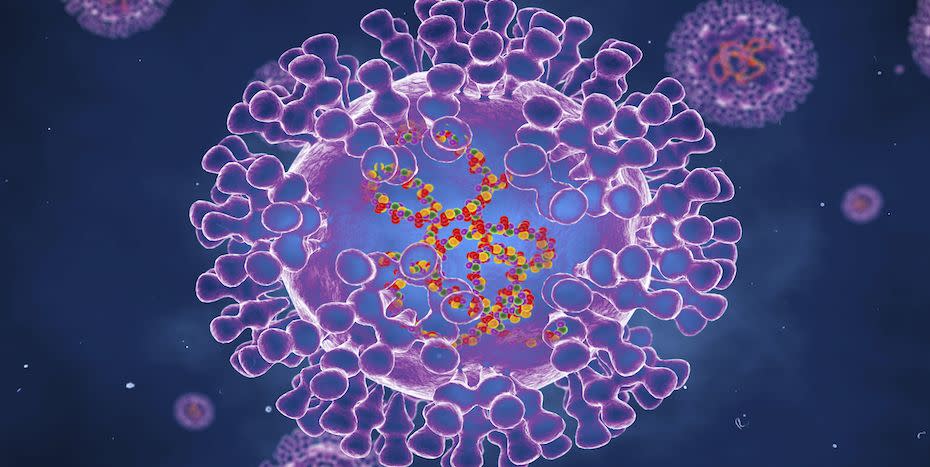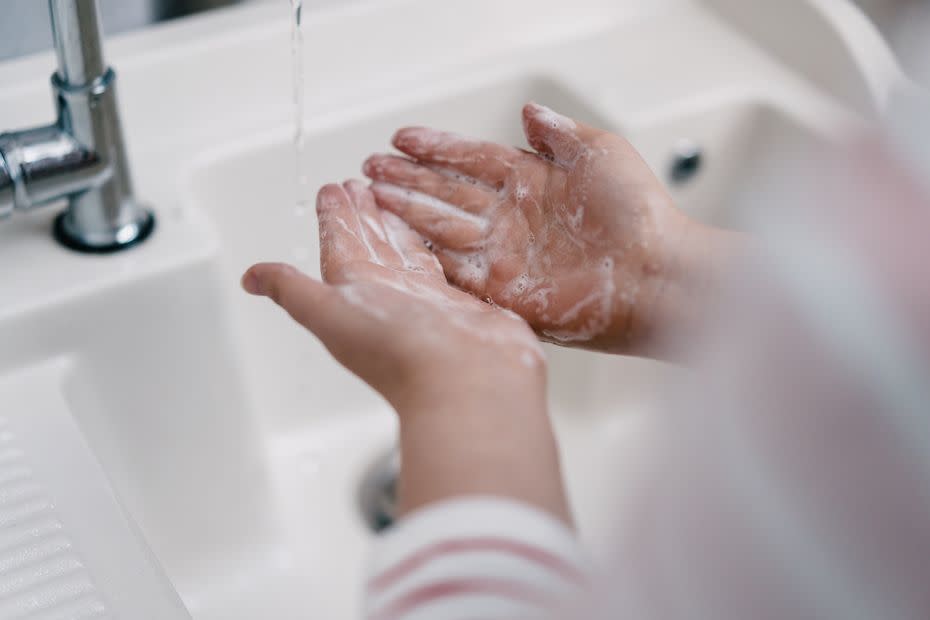With monkeypox cases on the rise, a doctor explains why there's no need to panic...

Just as we find ourselves 'getting back to normal' after two years living through the COVID-19 pandemic, it seems as though the universe is playing a cruel trick on us with the rising number of monkeypox cases we've seen splashed all over the news in recent weeks.
The increase in confirmed cases in the UK and across Europe – where monkeypox isn't typically found – combined with all that scaremongering on social media and news that contacts are being told to isolate, might have put you into a state of panic. But, should we actually be worried about monkeypox?
What is monkeypox?
Let's first take a look at what monkeypox is. "Monkeypox is a zoonotic virus – meaning it is a type of virus that can be passed from animals to humans," explains Dr Deborah Lee at Dr Fox Online Pharmacy.
"The first recent case of monkeypox detected in the UK was in a patient who had recently travelled here from Nigeria, where the infection is common," she adds.
Monkeypox symptoms
"The first symptoms are usually headache, fever, muscle pains and enlarged lymph glands," the expert tells us, adding that a rash then typically appears in the mouth and spreads to other areas of the skin. The rash starts out as small red spots, which then become raised and develop a blister in the centre.

"Over a period of two to four weeks, the blisters dry, crust over and then scabs are formed which later drop off," Dr Lee says. "Patients are considered infectious until the last crop of scabs has naturally disappeared."
"Monkeypox is most often a mild illness, which gradually gets better on its own," the expert adds, although she points out that it may "present a more serious problem" for young children, people who are pregnant and in those with a weakened immune system.
"There is no specific treatment for monkeypox – it’s a question of waiting for your own body to produce antibodies," Dr Lee tells us, although she notes that the smallpox vaccine is effective against the virus. "It [the vaccine] can be given up to 14 days after exposure to the virus to help prevent or make the episode of infection less severe," she says. "At present, the vaccine is only recommended for health care workers caring for monkeypox patients or for those who have close contact with someone who has recently had the diagnosis confirmed."
How do you catch monkeypox?
Although monkeypox is typically spread from animal to human, the cases we have been seeing in the UK have been passed from human to human. Despite that, Dr Lee emphasises that: "Moneypox does not spread easily from human to human."
As for how it does spread, she explains that this is from close skin to skin or personal contact – like sex – or from sharing infected clothes/bedsheets.
Should we be worried about monkeypox?
As monkeypox cases rise and contacts are being told to isolate, many people are concerned that monkeypox will reach pandemic levels. But, Dr Lee tells us this isn't something we should be stressing over.
"There is no need to panic about monkeypox," she emphasises. "The average person is extremely unlikely to catch it."
As for whether monkeypox could turn into COVID-19 2.0, Dr Lee says: "Unlike COVID, for whom most had few or no symptoms but were still highly infectious, the monkeypox rash is easily visible, making it a lot easier to recognise and control the spread of the infection."

"Just as we did for COVID, keep washing your hands and use hand sanitiser gel if you can’t wash your hands or are not at home."
What to do if you think you might have monkeypox
Seek medical attention if you have a blistering skin rash and:
You have been in close contact with someone who has a positive diagnosis of monkeypox
You’ve been to West Africa in the past six weeks
"Make sure you stay at home and do not mix with other people or go to crowded places until you have the correct advice from a medical professional," Dr Lee adds.
This article is not intended to be a substitute for professional medical advice or diagnosis. Always seek the advice of your physician or other qualified health provider with any questions you may have regarding a medical condition.
You Might Also Like

